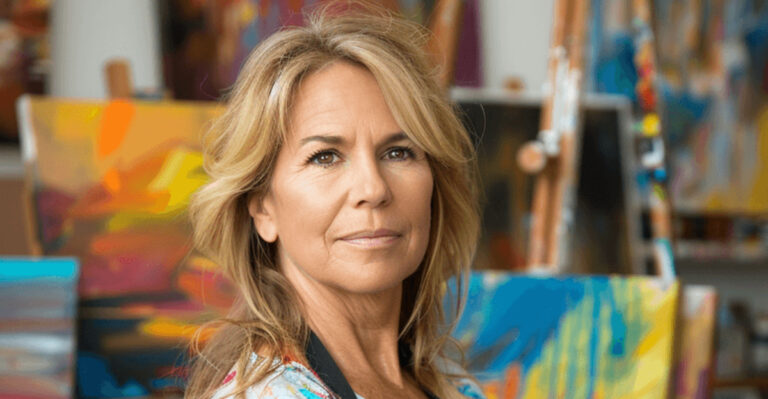32 modi inaspettati in cui il divorzio può essere peggiore di un matrimonio infelice
Divorce is not just a legal battle; it’s an emotional rollercoaster. And sometimes, believe it or not, it can be even tougher than sticking it out in an unhappy marriage.
It’s like trading one set of challenges for another, and oh boy, the grass isn’t always greener on the other side.
Allacciate le cinture mentre vi spieghiamo 32 motivi per i quali attraversare il labirinto del divorzio potrebbe farvi perdere le stranezze del vostro matrimonio non proprio felice.
1. Vortice emotivo
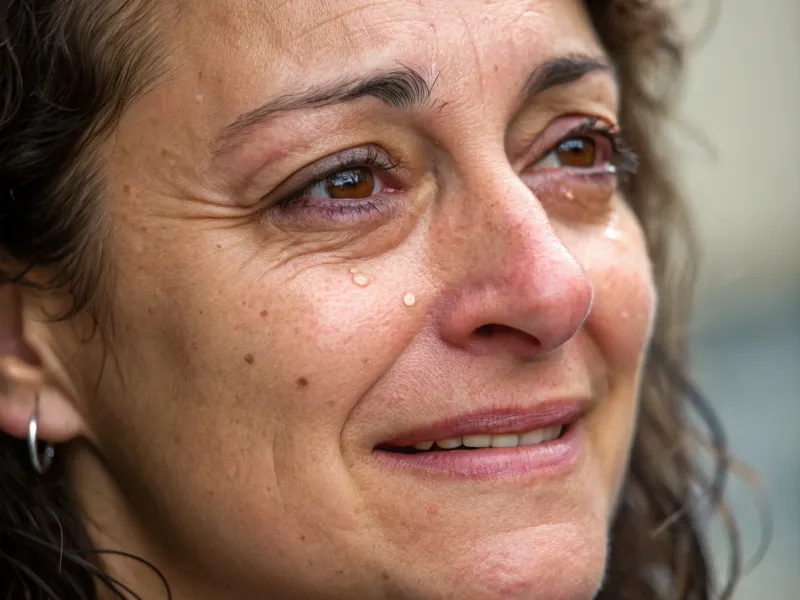
Divorce can spin your emotions around like a tornado. One moment you’re relieved, and the next, you’re hit by a wave of sadness and uncertainty. It’s a rollercoaster you didn’t sign up for but can’t get off of.
There’s a grieving process involved, and even if you wanted this, it doesn’t make it any less painful.
You might mourn the dreams you had, as well as the companionship, flawed as it may have been. It’s an emotional cocktail that no one really prepares you for, like mixing tequila with tears.
Vedi anche: 28 modi per vincere il divorzio finanziariamente, secondo gli esperti legali
2. Caduta finanziaria

Unraveling the financial ties of a marriage is like untangling a very expensive knot. Suddenly, two incomes become one, and expenses don’t just halve, they seem to double.
Ricostruire la propria indipendenza finanziaria può essere scoraggiante e terrificante.
Dalla divisione dei debiti alla ricalibrazione dello stile di vita, le ricadute finanziarie sono reali e impegnative. You may find yourself budgeting for the first time in years, and let’s be honest, that’s no fun. It can feel like you’re free-falling into financial uncertainty.
3. Impatto sui bambini
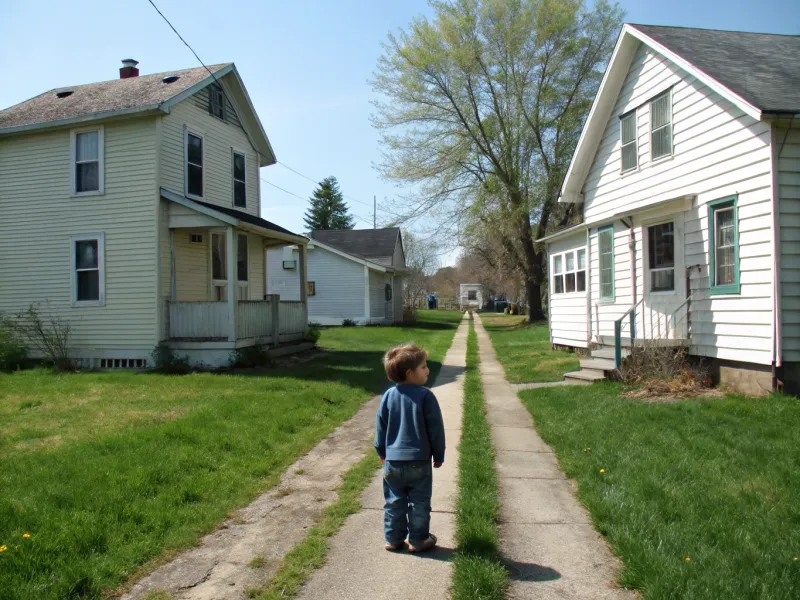
Quando sono coinvolti i bambini, il divorzio passa da uno sconvolgimento personale a una crisi familiare. I bambini possono percepire la tensione e il passaggio da una casa all'altra può confonderli e turbarli.
They didn’t ask for this ride but are unfortunately strapped in for the journey.
Trying to co-parent with someone you’re no longer married to involves a level of diplomacy that could rival a UN meeting. It’s about more than just splitting weekends; it’s about maintaining a sense of normalcy for your children amidst the chaos.
4. La ricalibrazione di routine
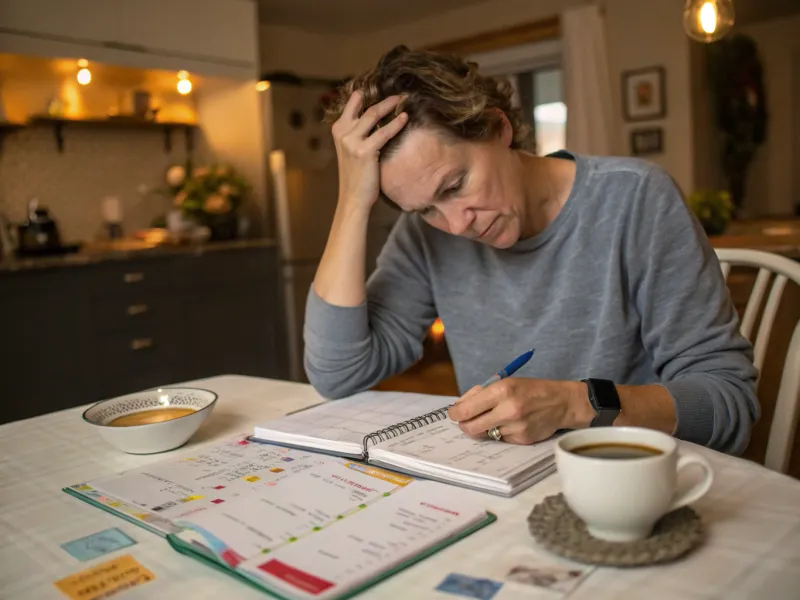
Il divorzio sconvolge le routine quotidiane, costringendo a ricalibrare la vita di tutti i giorni. Compiti e doveri che prima erano condivisi ora ricadono su una sola persona.
L'adattamento a questa nuova normalità può essere faticoso, in quanto richiede l'apprendimento di nuove competenze e una diversa gestione del tempo.
Creare una routine bilanciata che si adatti ai cambiamenti può essere un'esperienza positiva, ma richiede tentativi, errori e perseveranza.
5. Spostamenti sociali

Divorce can change the social landscape faster than you can say ‘singles night.’ Friends you shared as a couple might feel compelled to pick sides, even if they don’t want to.
Potreste ritrovarvi a perdere amici comuni e a partecipare da soli a eventi che un tempo vi piacevano in coppia.
There’s also the dreaded task of explaining the situation repeatedly—turning casual chats into therapy sessions. It can feel like a social exile, leaving you to rebuild your social life from scratch. It’s an awkward dance in a familiar yet now foreign social circle.
6. Il labirinto giuridico

Navigare nel sistema legale can feel like trying to understand a foreign language with no translation app in sight. Lawyers, court dates, splitting assets—it’s not a walk in the park. The paperwork alone can bury you in stress. Imagine juggling this while managing everyday life!
Se pensavate che trovare un accordo sulla cena con il vostro coniuge fosse difficile, provate a raggiungere un consenso sulla divisione di un patrimonio di una vita.
And let’s not forget the costs. Those lawyer fees can add up faster than you can say ‘amicable separation.’ It’s a financial drain that might make you long for the days of silent dinner tables and passive-aggressive post-it notes.
7. Dilemmi di coppia

Re-entering the dating scene post-divorce is like getting thrown into a reality show you didn’t audition for. Suddenly, there are apps, swipes, and terms you’ve never encountered before.
Navigare in questo nuovo mondo può essere intimidatorio e a volte decisamente comico.
There’s the pressure to present the best version of yourself while dealing with your emotional baggage. It’s a tightrope walk between being open and guarded, and quite frankly, it’s exhausting. And the rules of engagement? They’ve changed since you last checked!
8. L'eco dei circoli sociali

I circoli sociali spesso cambiano drasticamente dopo un divorzio, facendo sentire isolati. Gli amici che prima facevano parte della vostra vita in comune possono prendere le distanze o allontanarsi. Questo cambiamento può essere uno dei più difficili da gestire, perché sembra di perdere una parte della propria identità.
Improvvisamente, gli inviti alle riunioni si fanno più radi e i volti un tempo familiari diventano distanti. Costruire una nuova rete sociale richiede impegno e tempo, cosa che non tutti sono pronti a fare in un momento di sconvolgimento personale.
Tuttavia, trovare nuove comunità o riallacciare i rapporti con i vecchi amici può ricostruire lentamente il proprio sistema di sostegno.
9. Crisi d'identità
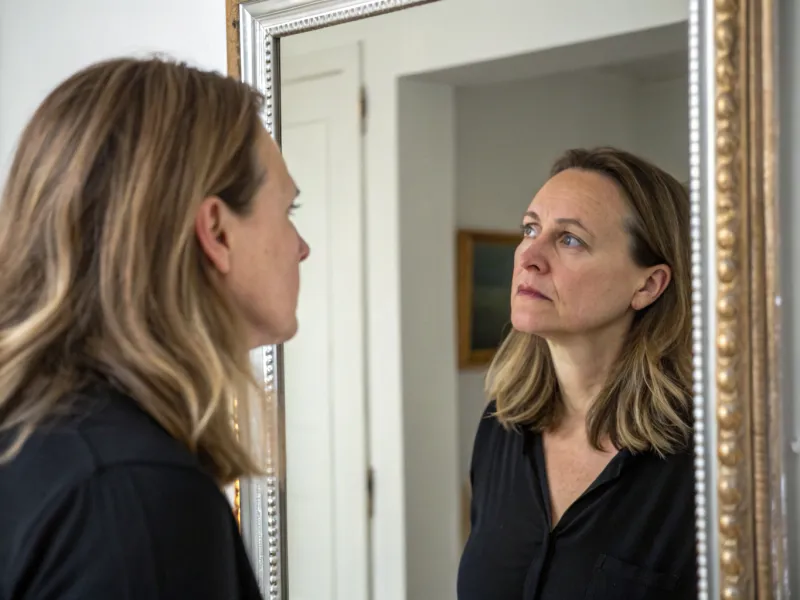
Marriage shapes our identity, and when it ends, it’s like losing a part of yourself. Suddenly, you’re not someone’s spouse, and that can leave a gaping hole in your sense of self.
Riscoprire chi si è al di fuori del matrimonio può essere confusa e scoraggiante.
Do you pick up old hobbies or find new ones? Do you embrace the changes or cling to the familiar? Every choice feels monumental, and there’s no guidebook to help you navigate this identity maze. It’s a deeply personal journey that can be both liberating and terrifying.
10. Realtà del trasferimento

Divorce often means moving, whether you want to or not. And let’s face it, moving is stressful on a good day. Now add emotional turmoil to the mix, and it’s a recipe for disaster.
Packing up your life and starting over in a new place can feel like a giant reset button you weren’t ready to press.
There’s the hunt for affordable housing, adjusting to a new neighborhood, and sometimes downsizing your lifestyle. It’s more than just a change of address; it’s an upheaval of your world that can feel overwhelming and exhausting.
11. La solitudine è in agguato

La solitudine può insinuarsi durante la procedura di divorzio come un ospite non invitato a una festa. Certo, potreste esservi sentiti soli durante il vostro matrimonio, ma questa è una bestia completamente diversa.
There’s no one to share those day-to-day moments with, and the silence can be deafening.
Evenings that used to be filled with routine now stretch into quiet, empty ones. It’s a solitude that feels different from simply being alone; it’s the absence of shared life that cuts deep. Trovare la pace nella solitudine diventa un passo necessario, anche se difficile.
12. Crollo dell'autostima

Divorce can take a real hit on your self-esteem. Even if you know it’s the right decision, it’s easy to start mettere in discussione la propria autostima.
Sono abbastanza bravo? Qualcun altro mi vorrà? Questi pensieri possono turbinare come una tempesta.
The end of a marriage can feel like a personal failure, and rebuilding your self-worth is no small feat. It’s about rediscovering that you are more than a partner; you are a whole person with value and potential. But getting to that realization? That’s the tough part.
13. Affari non conclusi
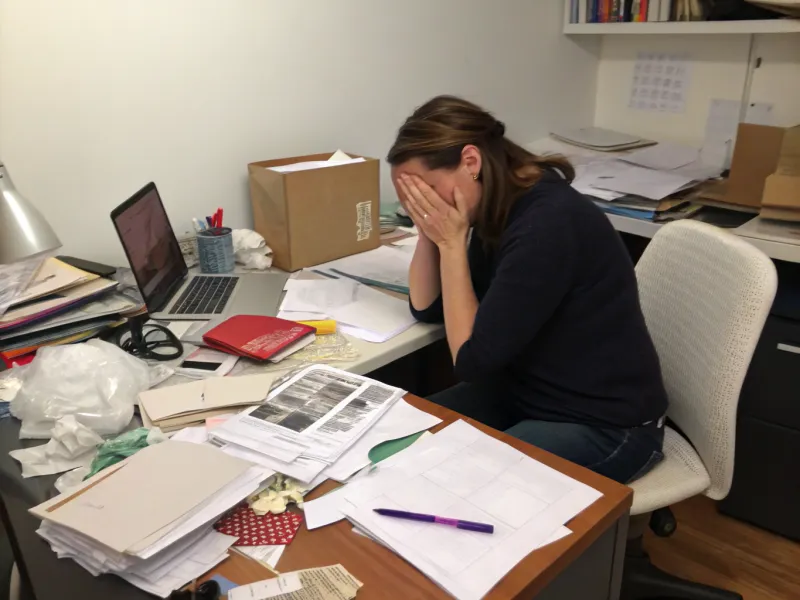
Sometimes, marriages end with unresolved issues, leaving a trail of unfinished business. It’s not always possible to get closure, and that can feel like an open wound.
Potreste ritrovarvi a rimuginare sui "se" e sui "come sarebbe potuto essere", a rivedere i momenti nella vostra mente.
Elaborare questi sentimenti è essenziale, ma senza l'altra persona con cui risolverli, può sembrare di fare shadowboxing. Il viaggio verso la chiusura diventa un atto solitario, che richiede tempo e pazienza.
14. Singhiozzo di salute

The stress of divorce doesn’t just affect your emotions; it can have physical consequences too. From sleepless nights to stress-induced ailments, your health can take a hit.
It’s easy to let self-care slip through the cracks when you’re overwhelmed, but it’s crucial to prioritize.
Taking care of your health should be at the forefront, even when everything else seems to be falling apart. It’s about finding small ways to nurture yourself amidst the chaos, even though it feels like the last thing you have energy for.
15. Incroci di carriera

Il divorzio può indurvi a rivalutare ogni aspetto della vostra vita, compresa la carriera. Potreste trovarvi a un bivio e chiedervi se il vostro lavoro attuale sia ancora in linea con il vostro nuovo percorso di vita.
Lo sconvolgimento può innescare il desiderio di cambiamento o il bisogno di immergersi maggiormente nella stabilità.
Balancing work with personal upheaval is tricky, to say the least. It’s a time to reassess priorities and make decisions about what truly matters to you professionally. It’s about finding a career path that supports your new beginning, even when it feels uncertain.
16. Problemi di fiducia
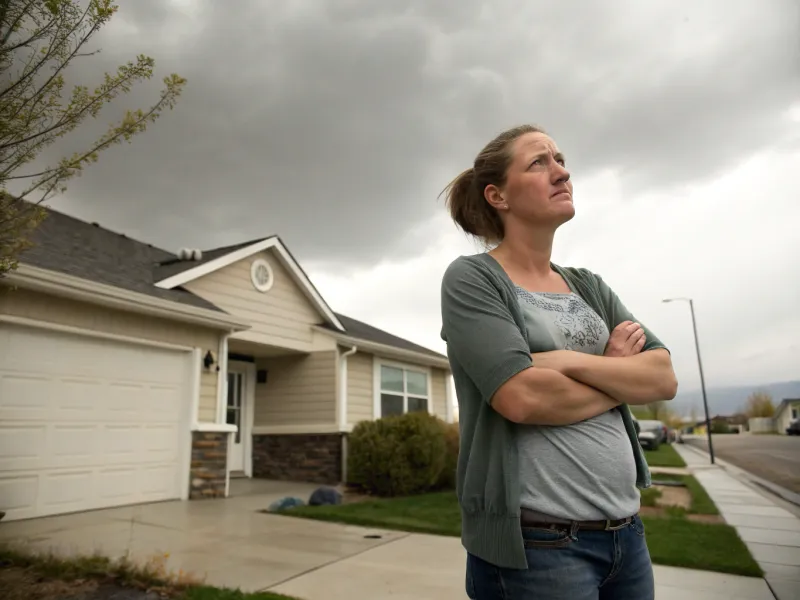
La fiducia è una cosa delicata e il divorzio può ridurla in mille pezzi. Che sia stata infranta durante il matrimonio o durante il processo di separazione, ricostruire la fiducia è difficile.
Opening your heart again can feel impossible when it’s been bruised.
Learning to trust yourself and others is a gradual journey. It requires patience and vulnerability, two things that might feel in short supply. But slowly, as you heal, trust can be rebuilt. It’s a long road, but one that can lead to stronger foundations.
17. La lotta contro lo stigma

Despite how common divorce is, there’s still a stigma attached to it. You may find yourself facing judgment from people who don’t understand your situation.
There’s a pressure to explain yourself, to justify your decision, even when you shouldn’t have to.
It can be exhausting, and sometimes, it feels like you’re wearing a scarlet letter. Overcoming this stigma involves finding your inner strength and learning to let go of what others think. It’s about owning your story and not letting others define it for you.
18. Notti di nostalgia
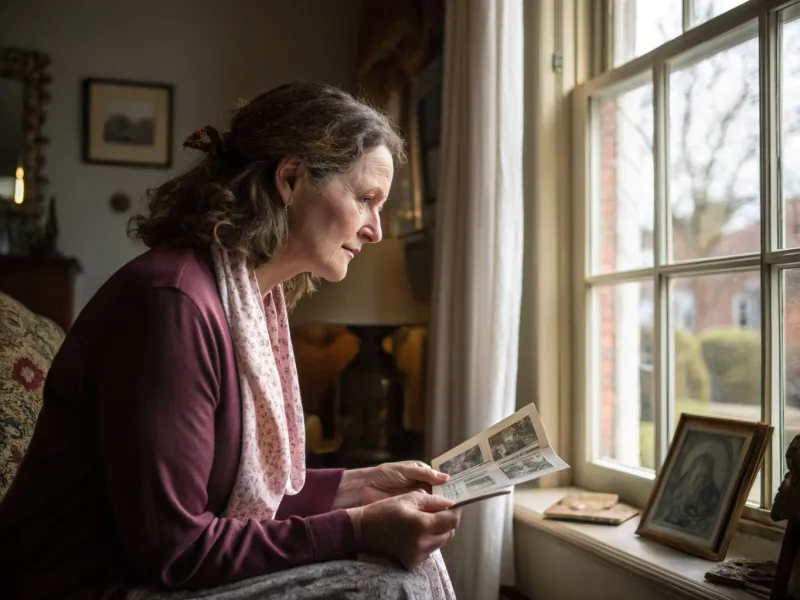
Nostalgia can sneak up on you, especially on those quiet nights. It’s easy to romanticize the past, remembering only the good times and forgetting why the marriage ended.
Questa memoria selettiva può rendere più difficile andare avanti, perché ci si ritrova a rimuginare su ciò che è stato.
Balancing these feelings of nostalgia with the reality of your decision requires mindfulness. It’s about cherishing the good memories without letting them overshadow the reasons you chose to part ways. It’s a delicate dance between past and present.
19. Terapia dei grovigli
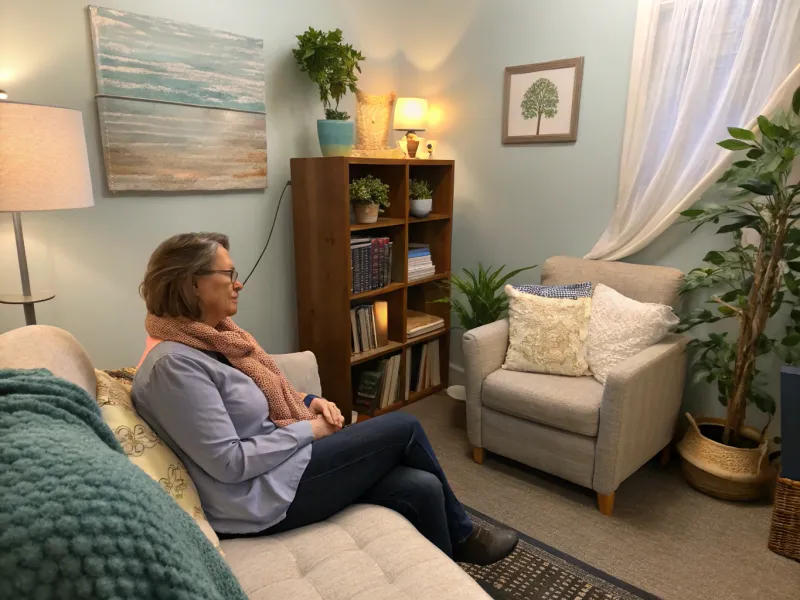
Therapy can be a lifesaver during divorce, but it’s not without its challenges. Aprirsi ai propri sentimenti più profondi può intimorire, especially when you’re not sure where to start.
Finding the right therapist is like dating all over again—sometimes it clicks, sometimes it doesn’t.
It requires patience, persistence, and a willingness to be vulnerable. But the benefits of therapy, though challenging, can lead to healing and self-discovery. It’s about giving yourself permission to seek help and embracing the journey, bumps and all.
20. Dolore per le vacanze
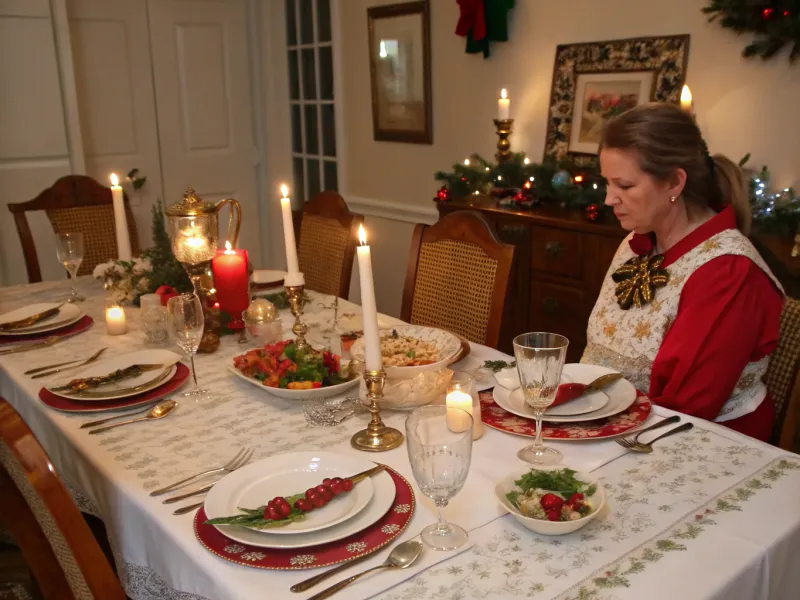
Holidays can be particularly tough post-divorce. What was once a time of shared traditions now feels like a reminder of what’s lost.
Il posto vuoto a tavola può sembrare un simbolo lampante del cambiamento, rendendo le feste più solenni che gioiose.
Finding new ways to celebrate and create traditions can be healing. It’s about redefining what holidays mean to you and finding joy in new experiences. While the heartache is real, so is the opportunity to make new, meaningful memories.
21. Faide familiari

Divorce doesn’t just affect you and your spouse; it can ripple through your entire family. Relationships with in-laws can become strained, and even your own family might have opinions or judgments.
La navigazione in queste dinamiche richiede pazienza e, a volte, una pelle spessa.
It’s about setting boundaries and finding ways to maintain peace without compromising your well-being. Family feuds can be exhausting, but learning to manage them is part of the journey. It’s about balancing familial ties with your newfound independence.
22. Nuove dinamiche familiari
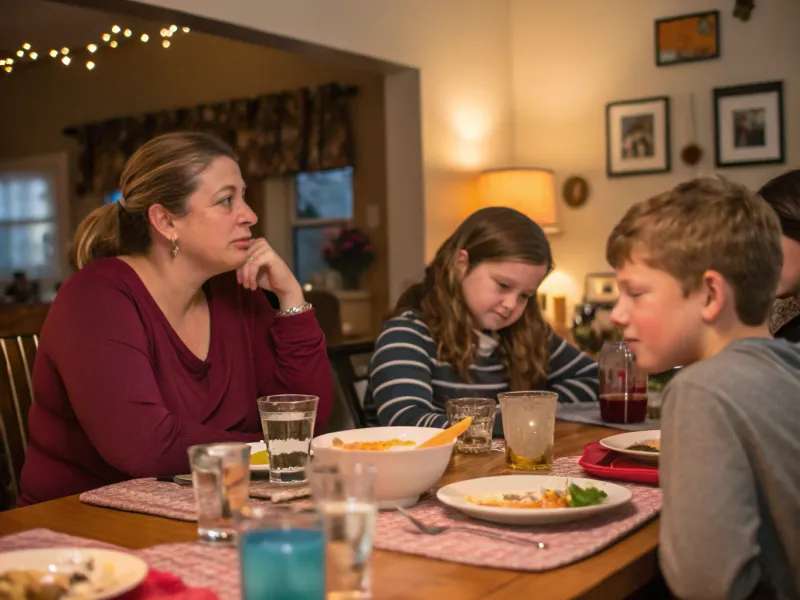
Se avete figli, il divorzio significa adattarsi a nuove dinamiche familiari. La fusione delle famiglie o l'introduzione di nuovi partner può essere complicata.
It’s about finding a balance between maintaining your parental role and embracing changes in the family structure.
This shift comes with its own set of challenges but also opportunities for growth and understanding. It’s about building a new kind of family, one that respects the past while embracing the future. It’s a journey of adaptation and acceptance, one that requires time and patience.
23. Fratture dell'amicizia

Il divorzio può mettere a dura prova le amicizie, soprattutto quelle che erano più vicine al vostro coniuge. Potreste ritrovarvi a perdere amici o a rivalutare le relazioni.
Rebuilding your social circle might feel daunting, but it’s also an opportunity to surround yourself with those who truly support you. It’s about cherishing the friendships that weather the storm and being open to forming new connections along the way.
24. Ricordi ovunque
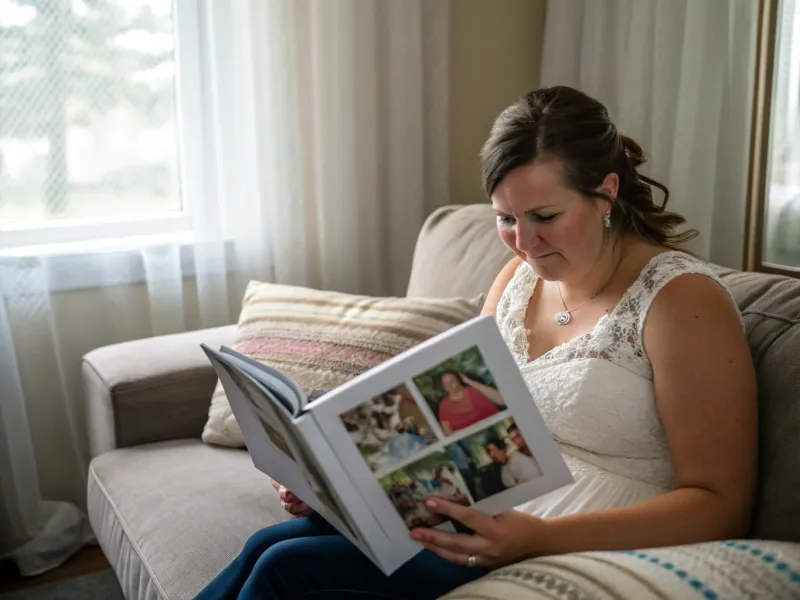
I ricordi del vostro matrimonio sono ovunque, dalle foto ai luoghi che avete visitato insieme. Ogni ricordo può scatenare una serie di emozioni, dalla nostalgia alla tristezza.
Può sembrare un ricordo costante di ciò che è stato, rendendo difficile andare avanti.
Finding ways to honor these memories while not letting them hold you back is a delicate balance. It’s about acknowledging the past but not letting it define your future. This journey involves gently letting go while creating space for new experiences.
25. Custodia di animali domestici

For many, pets are family, and deciding custody can be heart-wrenching. You may find yourself negotiating visitation schedules or making decisions about what’s best for your furry friend.
It’s an emotional process, one that feels like another layer of loss and adjustment.
Finding a solution that prioritizes the pet’s well-being while respecting both parties’ wishes is key. It’s about ensuring that your pet’s needs are met amidst the upheaval. This journey is about love, compromise, and sometimes, bittersweet goodbyes.
26. Secondi Pensieri

It’s natural to have second thoughts about the divorce, even if you know it’s right. Doubts can creep in, making you question the decision or what could have been done differently.
Questi pensieri fanno parte del processo di guarigione, anche se possono sembrare opprimenti.
Allowing yourself to feel these emotions without judgment is crucial. It’s about understanding that doubt is normal and part of moving forward. This journey is not about erasing the past but learning from it as you step into a new chapter.
27. Futuro incerto

The end of a marriage marks the beginning of a new chapter, and with it, an uncertain future. It’s a blank slate that can be both exciting and terrifying.
L'incertezza può sembrare opprimente, mentre si traccia un percorso senza i punti di riferimento familiari del passato.
Embracing this uncertainty requires courage and resilience. It’s about taking one step at a time, carving out a future that aligns with your true self. This journey is about transformation and discovering the possibilities that await beyond the horizon.
28. La sfilata infinita di scartoffie

L'aspetto amministrativo del divorzio può essere opprimente. I moduli, i documenti e il gergo legale sono infiniti e creano un mare di scartoffie che può sembrare infinito.
It’s not just about signing your name on the dotted line. Each document requires careful consideration, ensuring that every detail is correct.
La gestione di questa sfilata di documenti richiede tempo, pazienza e spesso un supporto legale, che può essere faticoso sia dal punto di vista mentale che finanziario.
29. Indipendenza inaspettata

With divorce comes independence, whether you were ready for it or not. Suddenly, you’re calling all the shots, and while that’s empowering, it can also feel overwhelming.
There’s a learning curve to managing all aspects of your life solo, from finances to fixing leaky faucets.
But this independence is also an opportunity to redefine your life on your terms. It’s about embracing the freedom to make choices that reflect who you truly are. This journey is about self-discovery and building a life that feels authentically yours.
30. La guarigione richiede tempo

Healing from divorce is a marathon, not a sprint. It takes time, and there’s no set timeline for when you’ll feel ‘okay’ again. Each person’s journey is unique, and comparison can be a thief of progress.
È essenziale concedersi la grazia di guarire al proprio ritmo.
It’s about finding small moments of peace and acknowledging that healing isn’t linear. This journey involves embracing the ups and downs, knowing that each step forward, no matter how small, is a move towards a more hopeful future.
Vedi anche: 27 spunti di conversazione sul divorzio per voi e il vostro coniuge
31. Il fantasma dei sogni condivisi

Divorce doesn’t just mean splitting assets; it also means letting go of the dreams you once built together. The future you planned as a couple—vacations, home renovations, even growing old side by side—vanishes overnight.
These unfulfilled dreams can haunt you, sneaking up during quiet moments or when you see other couples living out the life you once envisioned. Learning to let go and create new dreams is a slow, bittersweet process, but it’s also an opportunity to redefine what happiness looks like for you.
32. La sorpresa del rimpianto

Even when you’re certain that divorce was the right decision, regret has a way of creeping in. Not necessarily regret over ending the marriage, but regret over how things unfolded—words left unsaid, actions taken in anger, or simply wishing things could have gone differently.
This unexpected wave of remorse can catch you off guard, making it harder to move on. The key is learning to sit with these feelings, process them, and understand that regret doesn’t mean you made the wrong choice—it just means you’re human.



